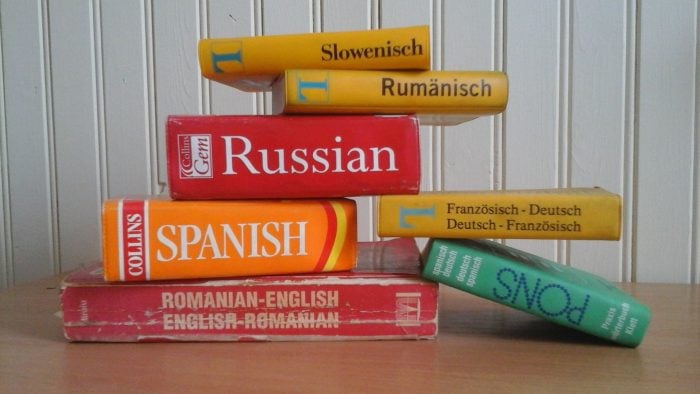Important Language Tips: How Can I Become a Translator?
With tools like Google Translate and many similar apps on our phones, we could be forgiven for forgetting the important roles real life translators play in our world. Whether this is for internationally-produced documentation by organizations such as the UN, or translating the necessary paperwork for emigration purposes, there is no reason to think translation services will ever become obsolete! But how do people become translators in the first place? What skill sets do you need? Here are our tips for becoming a translator.

Photo via Max Pixel / Max Pixel
Fluency
It will come as no surprise that the first skill you need if you want to be a translator is to be fluent, or near-fluent in the language you want to translate. You need to be competent enough in the language that you can pick up colloquialisms and accurately translate them. Your understanding should be at a level that means you can switch between your language and your target language with ease. But it goes beyond just being confident with the words. To truly understand a language is to understand another culture. A word-for-word translation might be technically perfect, but if that involves language that might offend even without meaning to, or completely misses the point, it’s going to cause problems. You need to be as versed in cultural differences as you are in vocabulary and grammar!
Professional qualifications
Depending on what roles you go for, you might need to consider an academic route. A bachelor’s degree is fairly standard as well as a qualification that proves your language proficiency. Regulation varies from country to country, so this is something you will need to research thoroughly before you start if you have a particular career in mind. You will also need to consider if it is beneficial for you to take a course on translation in a particular field, like medicine or law. In America, you can also get certified in translation through the American Translator’s Association, or in Canada, you can visit the Government of Canada’s Official Translation Bureau to find out more details.

Photo via Pixabay / Pixabay
Computer skills
As well as being an efficient translator, you will need to be an expert in all the tools you use, especially if you are considering a career as a freelance translator. There are the typical programs used by professional translators, like Memsource and memoQ that you will need a good understanding of. Whatever word processor you use you will need to know all the tips and tricks of for highlighting, footnotes, and so on. A bank of difficult phraseology is a great thing to keep as you work so that you always have something to refer back to. And a working knowledge of a spreadsheet package is a great way to keep track of work offers, invoices, and all the other necessary administration.
Writing skills
Since a translator’s job is a mastery of words, if you aren’t an effective writer then you are off to a terrible start! You will need to be able to write efficiently in your target language that it appears natural and native. This will include things like jargon, slang, different dialects, euphemisms, and many other aspects of language. Punctuation may vary differently in the language you are translating to your own, and in some cases, there might not be a literal translation at all. Read other translations, articles, and blogs in your target language, absorbing all the best parts to hone your own writing skills.

Photo via Pexels / Pexels
Experience
It’s a typical situation in any field of work that you need the experience to get work, and you need work to get that experience. If you’re just starting out as a freelancer, you can pitch for work with sites like Upwork and Freelancer. If you’re wanting some practice but don’t know where to start, helping students who need their thesis in two languages may be a good starting point. Word of mouth might also be a great way to get you started. Make your presence known online, respond to Tweets, offer mini translations of everything from song lyrics to sections on blogs. Any freelancing work is a challenge to set up, but once you have a few clients or some regular gigs, who knows where you could end up!
Translation is a wonderful career to get into, giving you an insight into another culture, and a workload that is different every day. Just remember that it’s important as a translator to brush up on your language skills on a regular basis by taking language courses that will keep you sharp and one step ahead of your competition.
